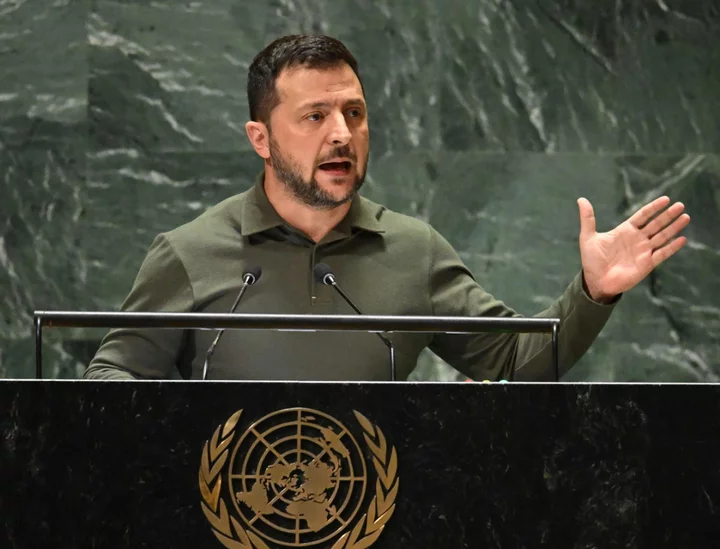
Russia is ‘weaponising’ food, energy and children in war on Ukraine, Zelensky tells UN
Russia is weaponising food, energy and abducted children in its war against Ukraine, president Volodymyr Zelensky told leaders at the UN General Assembly in New York on Tuesday. While there are agreements to restrict arms and trade, “there are no real restrictions on weaponisation”, he said. Mr Zelensky was addressing the gathering at a sensitive point in his country’s campaign to maintain international support for its fight. Nearly 19 months after Moscow launched a full-scale invasion, Ukrainian forces are three months into a counteroffensive that has not gone as fast or as well as initially hoped. “We must stand up to this naked aggression today and deter other would-be aggressors tomorrow,” Joe Biden earlier told the assembly. The world must remain united in defending Ukraine, he said, warning that no nation can be secure if “we allow Ukraine to be carved up”. During his address, Mr Biden described the partnerships that the US government was fostering around the globe – from Africa to the Indo-Pacific – as creating economic and other advancements, even as he stressed that those relationships were not about “containing any country” – a clear reference to Beijing. “When it comes to China, let me be clear and consistent,” Mr Biden said. “We seek to responsibly manage the competition between our countries so it does not tip into conflict.” In his 30-minute address, Mr Biden repeatedly emphasised the value of institutions such as the United Nations and international coalitions that have helped the world confront significant challenges such as poverty and disease, as well as echoing his defence of democracy, a common theme of his presidency. “We will not retreat from the values that make us strong,” Mr Biden said. “We will defend democracy – our best tool to meet the challenges that we face around the world. And we’re working to show how democracy can deliver in ways that matter to people’s lives.” There were some notable absences as Mr Biden made his case before the assembly, including Rishi Sunak, French president Emmanuel Macron, Chinese president Xi Jinping and Vladimir Putin. Mr Biden’s message of unwavering support for Ukraine will play out as the US Congress is increasingly divided over providing additional funding for Kyiv. Mr Biden has sought a package of £10.5bn in additional military aid for Ukraine and £6.8bn for humanitarian support. But conservative Republican lawmakers have been pushing for broad federal spending cuts and some of those allied to Donald Trump are specifically looking to stop money to Ukraine. Mr Biden is scheduled to host talks on Thursday at the White House with Mr Zelensky. During his visit to New York, Mr Zelensky spent time at a Staten Island hospital where he awarded medals to Ukrainian military members who had lost limbs. With help from a New Jersey-based charity called Kind Deeds, 18 personnel have been fitted with prosthetic limbs and are undergoing outpatient physical therapy at the hospital. “We all will be waiting for you back home,” Mr Zelensky told them. “We absolutely need every one of you.” Associated Press contributed to this report Read More Russia is ‘weaponising’ food, energy and children in Ukraine, Zelensky tells UN Zelensky urges Trump to ‘not waste time’ and share ideas on ending war in Ukraine Putin ‘weaponising’ food as troops target cargo ship in Black Sea - Ukraine live
1970-01-01 08:00
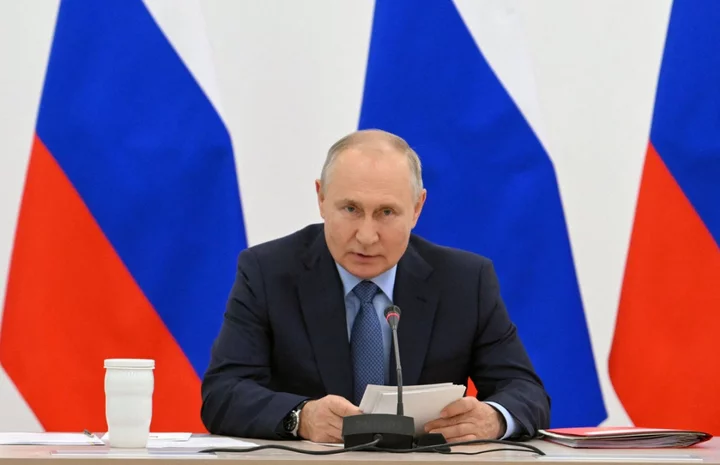
Ukraine-Russia war – live: Putin ‘weaponising’ food as troops target cargo ship in Black Sea
At the United Nations General Assembly in New York, Ukrainian president Volodymyr Zelensky accused Russia of “weaponising” everything from food and energy to abducted children in its war against Ukraine. In his first in-person appearance at the annual UNGA since Russia invaded his country in February 2022, Zelensky criticised Moscow for what he said was an “attempt to weaponise (a) food shortage on (the) global market in exchange for recognition of some, if not all, of captured territories.” Elsewhere, he accused Russia of committing genocide by kidnapping Ukrainian children and said Kyiv was working on preparing a global peace summit. “Ukraine is doing everything to ensure that after the Russian aggression, no one in the world would dare to attack any nation,” Zelensky added. “The occupier must return to his own land.” Meanwhile, the UK Foreign, Commonwealth & Development Office has confirmed that Putin’s forces targeted a cargo ship in the Black Sea. “The Russian military’s pattern of targeted attacks against civilian ships demonstrates Putin’s willingness to weaponise food at the expense of the rest of the world”, its statement read. Read More Zelensky urges Trump to ‘not waste time’ and share proposal on ending Russian invasion of Ukraine Ukraine ‘has one month to hold knife to Crimea’s throat’ and force Putin into peace talks How Ukraine’s battle for the Black Sea is inflicting serious pain on Putin’s forces
1970-01-01 08:00
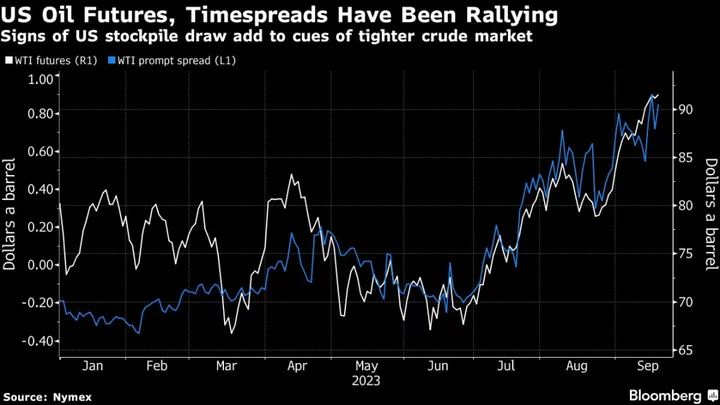
Oil’s Blistering Rally Takes Breather as Investors Turn to Fed
Oil fell after a breakneck rally as wider markets held a cautious tone ahead of a Federal Reserve
1970-01-01 08:00
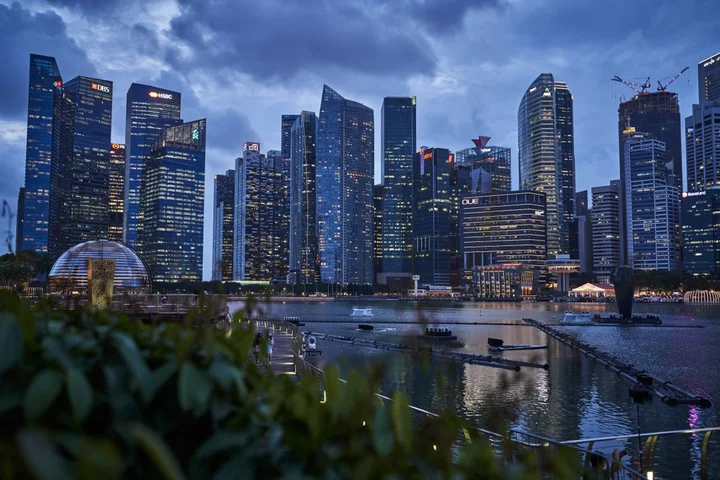
Pimco’s Asia Wealth Assets Jump 20% on Demand for Fixed Income
Pacific Investment Management Co.’s wealth-management business in Asia has grown this year at the fastest pace since 2018,
1970-01-01 08:00
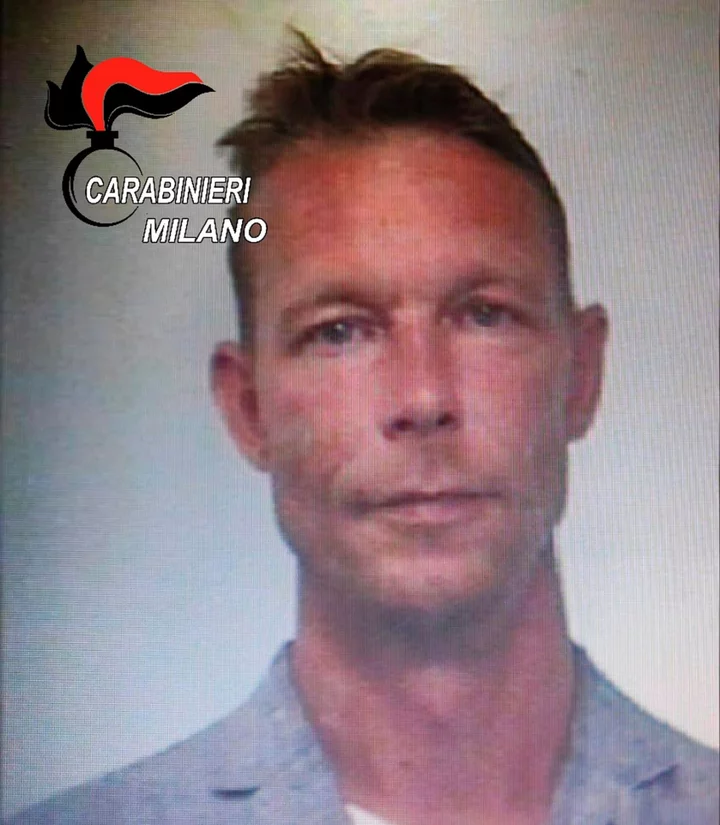
Madeleine McCann suspect can be tried for separate sex offences in Portugal, court rules
The prime suspect in the Madeleine McCann case can be tried over a separate string of alleged sex offences in Portugal, a German court has ruled. The decision overrules the northern city of Braunschweig’s state court’s prior ruling that it did not have the jurisdiction, because suspect Christian Brueckner did not live there. The court had argued its supposed responsibility for the case had been based on the suspect’s last residence before he went abroad and subsequently to prison. However, further evidence of a later residence in the neighbouring state of Saxony-Anhalt, where Brueckner was registered as the owner of a property that he kept after going abroad, means it can hear the case. In October 2022, prosecutors charged the 45-year-old – who is currently serving a seven-year sentence for a rape he committed in Portugal in 2005 - in several separate cases involving sexual offences allegedly committed there between 2000 and 2017. Brueckner hasn’t been charged in the McCann case, but he remains under investigation for murder. He has denied any involvement in her disappearance but is believed to have lived in Portugal between 1995 and 2007. He was first named in connection with the unsolved mystery in summer 2020, and officially named as a suspect last year. His yellow and white VW T3 Westfalia campervan was reportedly identified as having been near to the Praia da Luz resort where Madeleine went missing. German prosecutors say telecomms data shows Brueckner received a phone call on 3 May 2007 – the day that Madeleine went missing - near the Praia da Luz holiday apartment. But he reportedly claims to have been miles from the scene with a young German woman. In April 2022, he was jailed for the rape of a 72-year-old woman in the same resort. In total, it is believed he has 17 convictions including burglary, and he has also been linked to other disappearances of children. Read More Madeleine McCann prime suspect case ‘on verge of collapsing’ Detectives searching for Madeleine McCann give update after scouring reservoir Madeleine McCann case: Timeline of the missing child’s disappearance How much has the Madeleine McCann investigation cost? Who is Christian Brueckner? Madeleine McCann suspect and the accusations against him Madeleine McCann suspect ‘said she didn’t scream’ when kidnapped, friend claims in explosive interview
1970-01-01 08:00
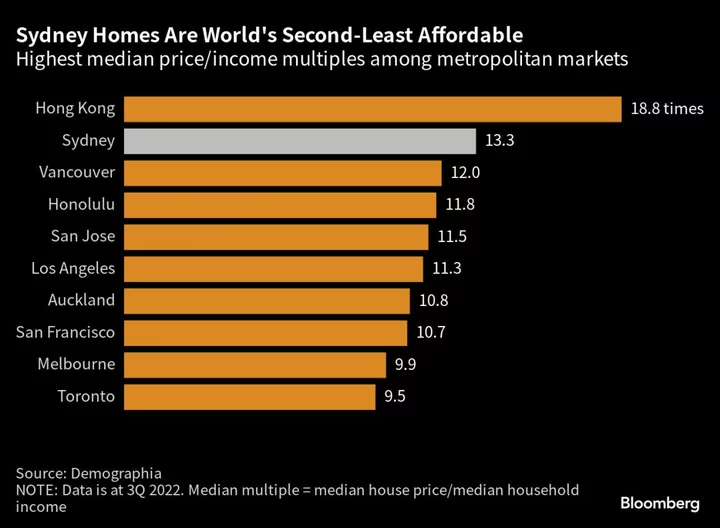
Housing ‘Vicious Spiral’ Drags Australia Into Deepening Crisis
It’s getting harder than ever to rent a home in Australia as one of the world’s most acute
1970-01-01 08:00
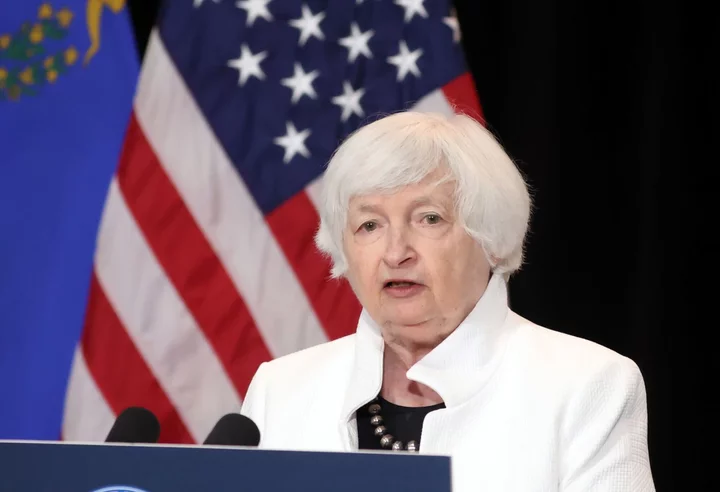
Brazil to Put Environment at G-20 Center: Climate Finance Update
Climate change is the focus of dozens of events in New York this week, as world leaders, corporate
1970-01-01 08:00
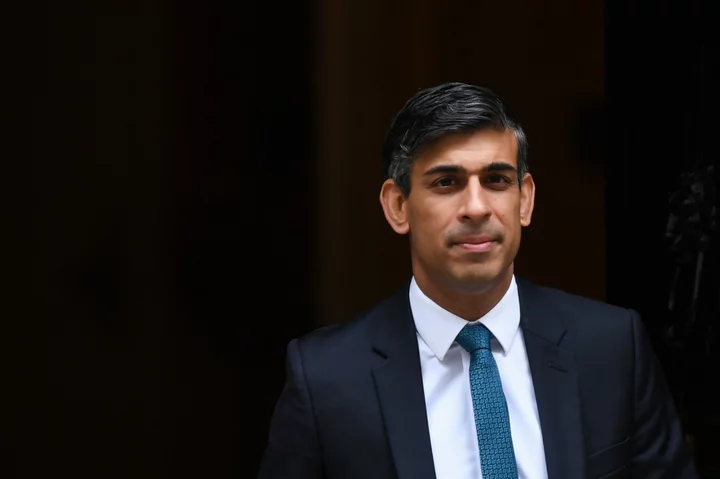
Sunak Considers Diluting Green-Energy Policies, Delaying Diesel Ban
UK Prime Minister Rishi Sunak is considering diluting some of his green policies, according to a person familiar
1970-01-01 08:00
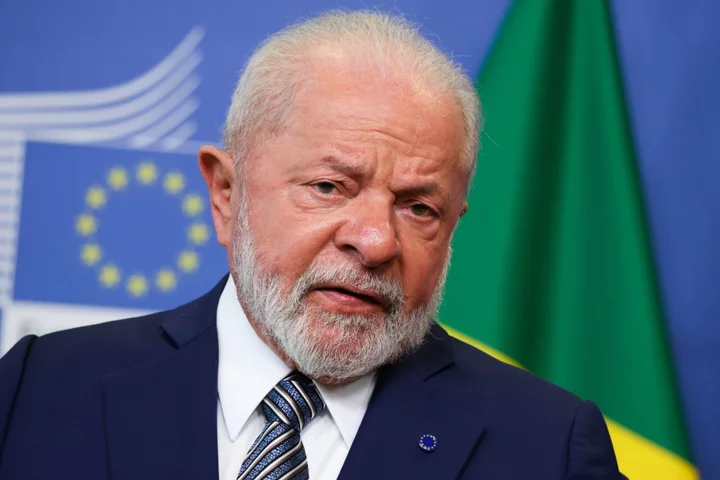
UN Latest: NATO Chief Confident US Will Keep Supporting Ukraine
NATO Secretary General Jens Stoltenberg said he was “confident” the US and other allies would continue to support
1970-01-01 08:00
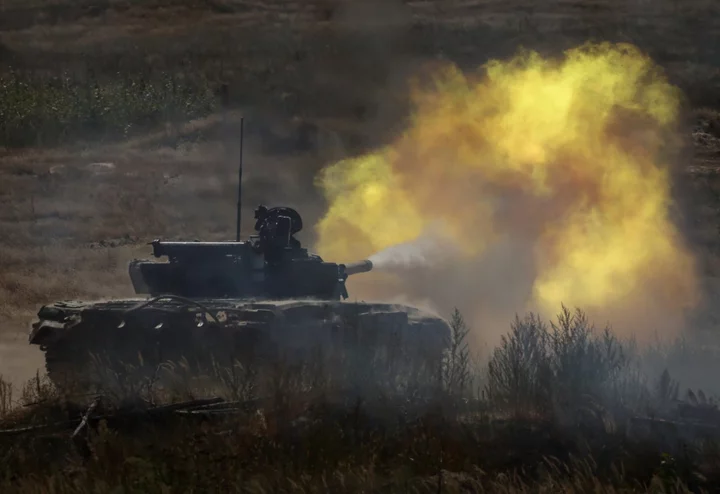
Ukraine ‘has one month to hold knife to Crimea’s throat’ and force Putin into peace talks
Ukraine has just four weeks to hold a "knife at Crimea's throat" and force Vladimir Putin into peace talks before Russia's army recoups over winter, experts have warned. Professor Mark Galeotti, academic and author of more than 20 books on Russia, said Volodymyr Zelensky’s troops need to move another 10 miles southwards to be in range of striking key Russian supply routes in Crimea. He claimed this is the only “serious” chance Ukraine has to force Mr Putin into negotiations before the Russian army has the opportunity to regroup over winter. “They’ve got about another month of campaign season. But if things slow down, the Russians will use the winter to regroup themselves and the whole thing will start up again in spring,” the professor, who teaches Slavonic and East European Studies at University College London, told The Independent. “If Ukraine can move another 10 miles southwards, Russian road and rail links used to resupply Crimea will be in range of their artillery. “The only serious chance Ukraine has of forcing Putin to the negotiating table is by holding a knife at Crimea’s throat. But I think that is going to be next year’s campaign.” It comes after President Zelensky admitted that Ukraine’s counteroffensive was progressing slowly, but insisted that more territory was being reclaimed every day. “The situation is tough,” he told CBS’s 60 Minutes. “We stopped the Russians in the east and started a counteroffensive. Yes, it is not that fast but we are going forward every day and de-occupying our land.” Ukrainian generals claimed they had recaptured the eastern villages of Klishchiivka and Andriivka near Bakhmut over the weekend. Earlier this month, Ukrainian forces also breached Russia’s first line of defence near Zaporizhzhia in the south of the country, taking the village of Robotyne. This Zaporizhzhia area is a “key” battlefield, as breaking through would allow Ukrainian forces to strike out towards the Sea of Azov, Professor Galeotti said. This would allow Ukrainian forces to disrupt and destroy supply lines linking Rostov-on-Don, in Russia, and the Crimean Peninsula, which was annexed in 2014. But Dr Marina Miron, a postdoctoral researcher at King’s College London war studies department, it was "very unlikely" there would be a major breakthrough for Ukraine this year as its "window of opportunity" was now closing ahead of winter. “The rain is already starting,” she said. “The weather will get a lot worse.” Ukraine launched its counter-offensive in June to push Mr Putin’s forces out of land captured by Russia after the invasion began in February 2022, striking along the 600-mile frontline in areas including the Bakhmut, Kharkiv and Zaporizhzhia regions. But as the offensive slows it is now “touch and go” as to whether Ukraine can make a “real, pivotal difference” in the war by the end of this year, Dr Miron said. “The main effort will be to sustain troops throughout the winter. Ukraine will not be in a position to carry on the offensive,” Dr Miron added. She explained Ukraine had a “heavy logistical” footprint with German Leopard and British Challenger 2 tanks, but they would be harder to use in wetter, muddier conditions, to assist a full breakthrough. “They’re just not designed for those types of terrains,” she said. “They would risk losing more equipment getting bogged down in winter conditions than waiting it out until getting F-16 fighter jets.” In August, Denmark promised the delivery of 19 F-16 jets to Ukraine. Six will be delivered by the end of this year, followed by eight in 2024 and five in 2025, according to Danish prime minister Mette Frederiksen. However, Ukraine admitted it could take up to six months to train its military to use the jets and they would not be in operation this winter. With fears growing around wavering Western support as the war draws on, Dr Miron said: “Neither side have an infinite supply of money or manpower. But Russia does have time. And that’s what they are betting on.” Read More Ukraine-Russia war – live: Putin’s brigades ‘suffer heavy losses’ as counteroffensive advances around Bakhmut Kremlin says Russia and China must edge closer to counter Western efforts to contain them US defense chief urges nations to dig deep and give Ukraine more much-needed air defense systems
1970-01-01 08:00
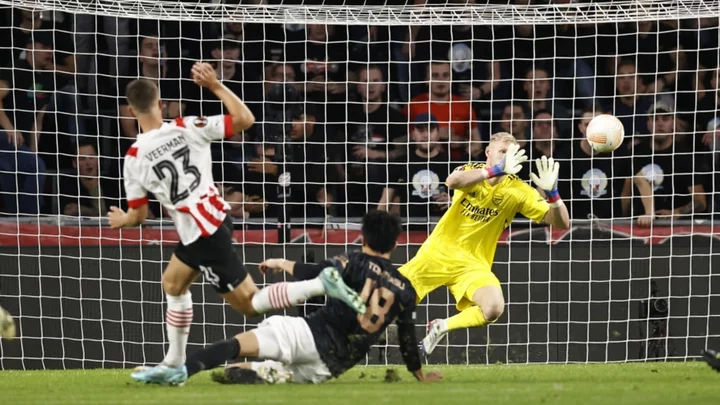
Arsenal vs PSV Eindhoven: Complete H2H record
The complete head-to-head record between Arsenal and PSV Eindhoven, including the most memorable games in the Champions League and Europa League as well as the top scorer in this fixture.
1970-01-01 08:00
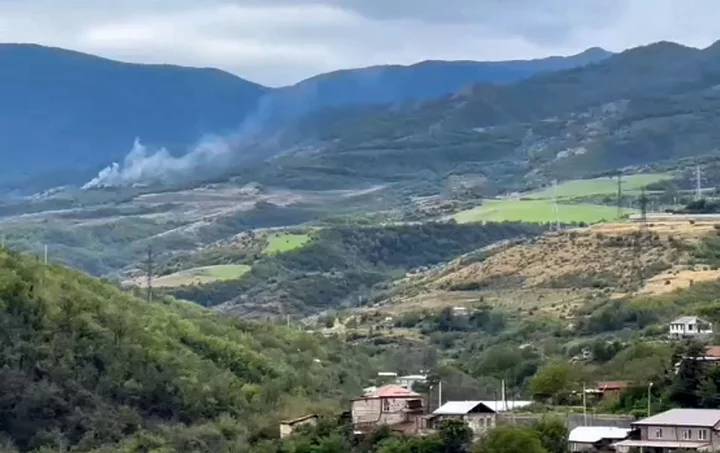
Nagorno-Karabakh: Fears of full-scale war as Azerbaijan launches attack on Armenian positions
Azerbaijan has launched what it has called an “anti-terrorist operation” targeting Armenian military positions in the breakaway region of Nagorno-Karabakh, as heavy artillery firing was reported around its capital. The Azerbaijani defence ministry announced the start of the operation hours after four soldiers and two civilians died in landmine explosions in the Nagorno-Karabakh region. It raises concerns that a full-scale war over the region could resume between Azerbaijan and Armenia, which fought heavily for six weeks in 2020. The ministry did not immediately give details but said “positions on the front line and in-depth, long-term firing points of the formations of Armenia’s armed forces, as well as combat assets and military facilities, are incapacitated using high-precision weapons”. The Azerbaijani statement said: “Only legitimate military targets are being incapacitated.” But ethnic Armenian officials in Nagorno-Karabakh said the region’s capital Stepanakert and other villages are “under intense shelling”. Earlier on Tuesday, Azerbaijan said six people died in two separate explosions in the region, which is partly under the control of ethnic Armenian forces. A statement from Azerbaijan‘s interior ministry, state security service and prosecutor-general said two employees of the highways department died before dawn when their vehicle was blown up by a mine and that a truckload of soldiers responding to the incident hit another mine, killing four. Nagorno-Karabakh and sizeable surrounding territories had been under ethnic Armenian control since the 1994 end of a separatist war, but Azerbaijan regained the territories and parts of Nagorno-Karabakh itself in a six-week war in 2020. That war ended with an armistice which placed a Russian peacekeeper contingent in Nagorno-Karabakh. But Azerbaijan alleges that Armenia has smuggled in weapons since then. The claims led to a blockade of the road connecting Nagorno-Karabakh to Armenia, causing severe food and medicine shortages in the region. Red Cross shipments of flour and medical supplies reached Nagorno-Karabakh on Monday but local officials said road connections to the region were not fully open. The hostilities come amid high tensions between Armenia and its longtime ally Russia. Armenia has repeatedly complained that the 3,000-strong Russian peacekeeping force was unable or unwilling to keep the road to Armenia open even though that duty was stipulated in the agreement that ended the 2020 war. Armenia also angered Russia, which maintains a military base in the country, by holding military exercises with the United States this month and by moving toward ratifying the Rome Convention that created the International Criminal Court, which has indicted Russian President Vladimir Putin. Russian foreign ministry spokeswoman Maria Zakharova on Tuesday denied claims that Russia was informed in advance of Azerbaijan‘s intention to mount the operation, saying the peacekeepers were notified only “a few minutes” before it began. Reporting by Associated Press.
1970-01-01 08:00
